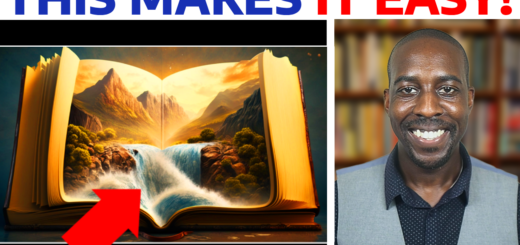Does the Old Testament Teach That the Coming Messiah Would Be God?
The question of whether the Hebrew Scriptures teach the divinity of the Messiah is one of the most significant debates between Christians and Jews.
While some skeptics argue that the belief in a divine Messiah is purely a Christian invention, the Old Testament — along with early Jewish interpretation — tells a different story.
In this post, we will:
- Examine a key passage from the Book of Daniel.
- Look at how one of the most respected rabbis in Jewish history interpreted it.
- Consider two important passages from the Talmud.
- Address common objections.
 Daniel’s Vision of the Thrones
Daniel’s Vision of the Thrones
In Daniel 7:9, the prophet describes a heavenly vision:
“I beheld till the thrones were cast down, and the Ancient of days did sit, whose garment was white as snow, and the hair of his head like the pure wool: his throne was like the fiery flame, and his wheels as burning fire.” – Daniel 7:9
Daniel sees thrones — plural — and the Ancient of Days seated on one. The plural is significant because it suggests that more than one person is sharing in this heavenly rule. One throne is clearly for God, but the other is for someone else — the Messiah.
The equality of these thrones indicates the Messiah shares the authority of the Ancient of Days. This understanding was not exclusive to Christians; many ancient Jewish scholars came to the same conclusion.
 Rabbi Akiva — Chief of the Sages
Rabbi Akiva — Chief of the Sages
To understand how significant this interpretation is, we must consider the stature of Rabbi Akiva (also spelled Akiba).
Born around 50 AD, approximately twenty years after the crucifixion of Jesus, Rabbi Akiva lived until 135 AD. He was a towering figure in Rabbinic Judaism, known as the Chief of the Sages (Rosh la-Chakamim) and a leading contributor to the Mishnah, which later became part of the Talmud.
Without his foundational work, later Jewish giants such as Rashi and Maimonides would have had nothing to build upon. Rabbi Akiva taught tens of thousands of disciples and shaped the practices and beliefs of generations of Jews.
Why does this matter? Because this very rabbi — the most respected in Rabbinic history — interpreted Daniel 7:9 in a way that aligns closely with the Christian understanding.
 The Talmud: Sanhedrin 38b and Chagigah 14a
The Talmud: Sanhedrin 38b and Chagigah 14a
In Sanhedrin 38b, the rabbis discuss Daniel 7:9 and the meaning of the two thrones:
“I beheld till thrones were placed… One throne is for Him [the Ancient of Days], and one throne is for David [the Messiah].” — Rabbi Akiva
Here, “David” is a Messianic reference, pointing to the prophesied Son of David. Rabbi Akiva taught that the second throne in Daniel’s vision belonged to the Messiah, placing Him alongside God.
Rabbi Yosi responded sharply:
“Akiva! How long will you profane the Divine Presence — by equating God with a person?”
In other words, Rabbi Yosi understood Akiva’s interpretation to mean the Messiah would be equal with God. While he objected to the conclusion, his very objection confirms that this is exactly what Akiva’s interpretation implied.
Another passage, Chagigah 14a, reinforces the same point.
“One verse states: His throne was fiery flames; another states: till thrones were placed, and the Ancient of Days did sit — implying two thrones. One is for Him [God], and one is for David [the Messiah].” — Rabbi Akiva
Again, Rabbi Yosi objects, warning Akiva against portraying the Messiah as sharing God’s throne. But the record shows that a preeminent rabbi of the early second century interpreted Daniel exactly as Christians do: the Messiah shares God’s rule and authority.
 The Messiah in Daniel 7:13–14: Answering Common Objections
The Messiah in Daniel 7:13–14: Answering Common Objections
The fuller context of Daniel’s vision makes this conclusion unavoidable:
“I saw in the night visions, and, behold, one like the Son of man came with the clouds of heaven, and came to the Ancient of days… And there was given him dominion, and glory, and a kingdom, that all people, nations, and languages, should serve him: his dominion is an everlasting dominion, which shall not pass away, and his kingdom that which shall not be destroyed.” – Daniel 7:13–14
In the Old Testament, coming “with the clouds of heaven” is a divine act. The “Son of man” in this vision receives eternal dominion over all nations — an honor and authority reserved for God Himself.
This explains why Rabbi Akiva’s interpretation was so controversial: if the Messiah sits on a throne beside God and receives the worship of all nations, He must be divine.
Some Jewish interpreters, both ancient and modern, attempt to resolve the “two thrones” problem by saying both thrones belong to God — one for judgment and one for mercy.
However, this explanation is not found in the text itself; it is an attempt to harmonize the passage with a preexisting belief that the Messiah cannot be divine.
Daniel’s vision, along with the testimony of early Jewish authorities, points clearly to a Messiah who shares God’s throne, authority, and eternal rule.
 The Divine King
The Divine King
Far from being a Christian invention, the idea of a divine Messiah was present in ancient Jewish thought.
The most respected rabbi in early Rabbinic history, Rabbi Akiva, interpreted Daniel 7:9 as showing two thrones. One throne was for God, and the other was for the Messiah.
For Christians, this confirms that Jesus, the Son of Man, fulfills the prophecy of Daniel. He is the divine King who will reign forever.
This truth also raises another question: if Jesus is the divine Messiah, what does that mean for His identity as the Word of God?
For a deeper look at this, read the next article: Is Jesus the Word of God? 3 Reasons Why John Makes It Unmistakably Clear.
WATCH THE VIDEO
























Recent Comments